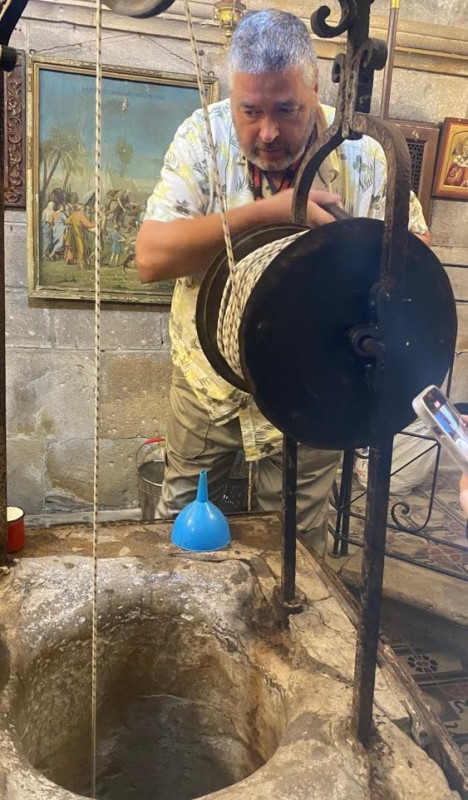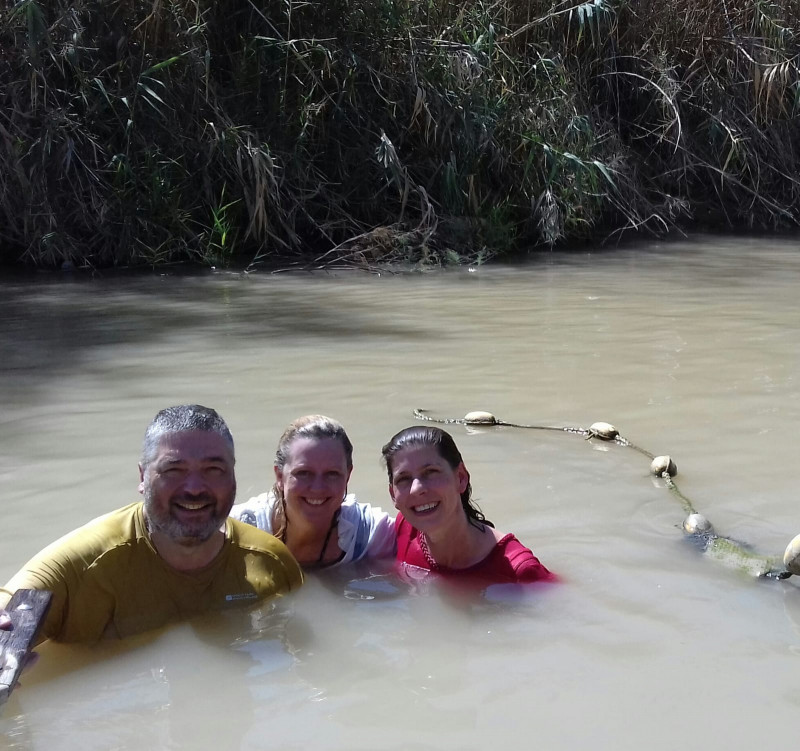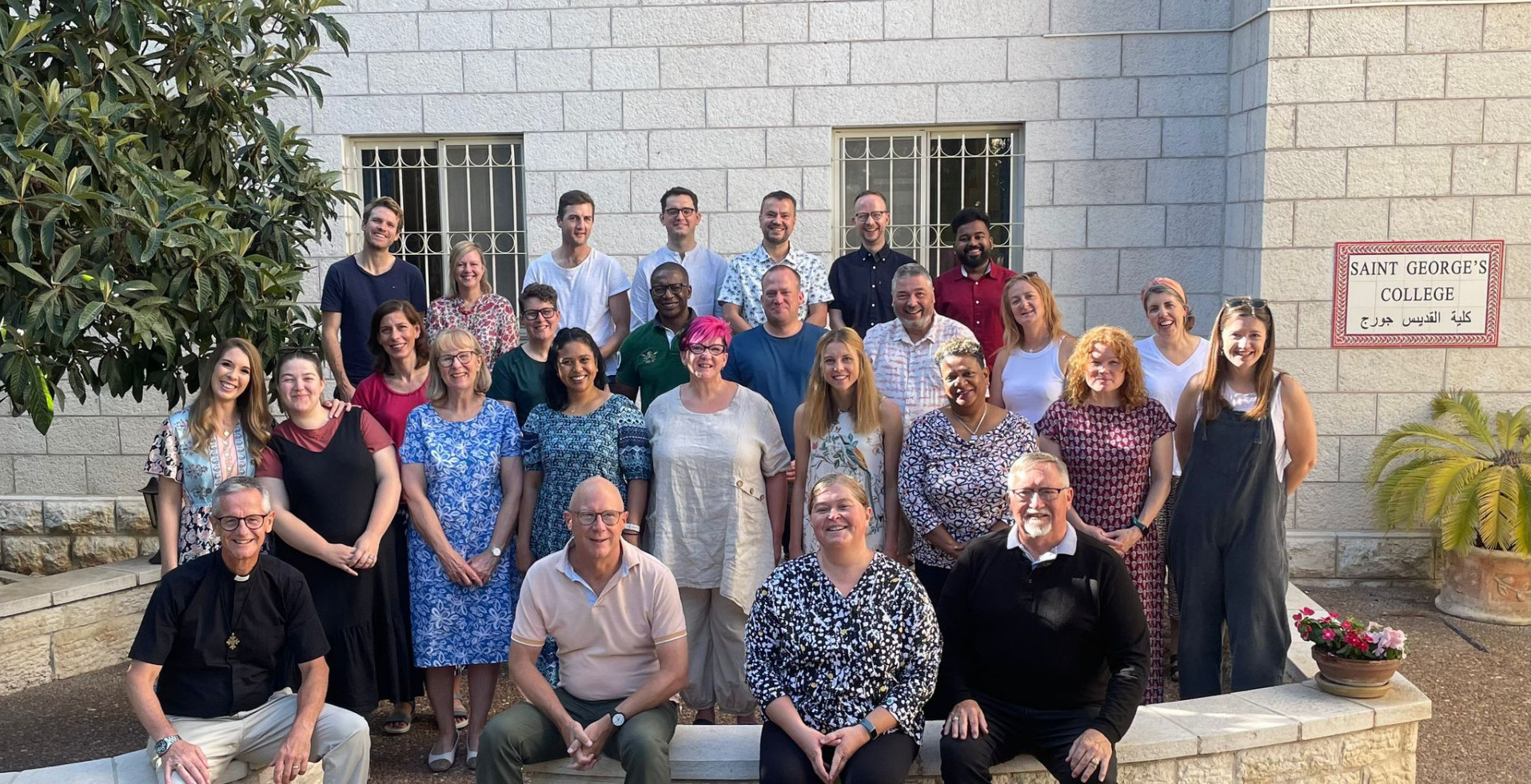5 October 2023
By Gary Waldron
Does being blessed have a unit of measure? Earthquakes are measured in richters, temperature in centigrade, and length in millimetres, but what about being blessed? Can you be blessed and then be even more blessed?
At the start of the pilgrimage, we were asked to express one word that expressed how we felt, and as you might have guessed from my introduction, I chose blessed.
Being asked at the beginning of the journey was interesting because, as it turned out, we had absolutely no idea what lay in front of us over the next twelve days, We had no idea how challenging it was going to be, mentally, physically and spiritually, we had no idea how much we didn’t know that we didn’t know, we had no idea how confirming some of the biblical sites would turn out to be, and we definitely had no idea how well planned, managed, executed and led it was going to be.
Having previously walked the Camino de Santiago, 800km across Spain in 35-degree heat, I have a little idea of what a pilgrimage could look like, what it would consist of, how it would make you feel and how it would change you. Describing this visit as a pilgrimage was a bold idea, and I did wonder, before the visit, if this was the correct word to describe twelve days of great food, air-conditioned bus trips, comfortable rooms and hardly any walking!
But a pilgrimage isn’t only characterised by its physical nature, a pilgrimage describes a period of time set aside during which we hope to meet and face new ideas, situations, people, realities and above all, ourselves. By this measure, the description of pilgrimage was well chosen.
An integral part of the pilgrimage was to explore and understand biblical history, which the visit provided in spades, However, for me, this was complemented by an increased understanding of the geography and topography of the Holy Land. I don’t know why, but learning how close Bethlehem is to Jerusalem was significant, as was exploring the hills and valleys of Jerusalem, graphically and then physically, brought a new understanding that will help me interpret biblical stories and, as a result, grow my own spirituality and support my ministry.
Facing the political realities in the Holy Land was also a challenge for many of us, and the opportunity to meet and really deeply question people representing all sides meant that we got an honest and, at times, very challenging view of the lives people lead. The first few days consisted of a series of such meetings, to the point where we all felt that we “got it” and just wanted to move on. Which, fortunately, was precisely what we did. The change in scene and scenery as we moved for a few days to Nazareth brought a very welcome break from politics as we focused almost exclusively on the biblical history elements.
Continuing on the pilgrimage theme, our growing together as a group, once mostly strangers, became another significant part of the journey. Whilst we had one thing in common, our status as ordinands, we came from very different backgrounds, colleges, churchmanship, ages and faith stories, but this shared experience brought us together in a remarkable way. Without any planning, it was clear everyone was making sure they got to know everyone, spent time with everyone and then followed up in a relaxed and unhurried way—a true sign of a shared pilgrimage experience.
Finally, I won’t destroy my word count by including all of the stated aims of the pilgrimage, but I want to pick three phrases where the pilgrimage absolutely excelled and which describe how important this time away was for my ministry formation.
1) Study the life and ministry of Jesus of Nazareth

Drawing and sharing water from Jacob’s Well, the place where Jesus’s ministry really started; receiving Jesus’s Body and Blood within metres of the Sea of Galilee; standing and praying on the very steps where Jesus walked into the temple and standing in the heat of the Judean wilderness, wondering how long you would survive without water.
Any one of these would have been significant on its own, but we got to experience these and more, all with a passionate, knowledgeable and expert guide to help us interpret it. How can you go home unchanged from this?
2) To engage local Christian communities, Jewish and Muslim perspectives and contemporary issues in Israel and Palestine
I will never forget the feeling of standing in the Yad Vashem Holocaust Museum next to a young Jewish family as we both explored and learned for the first time, through words and pictures, what the Holocaust actually means on the ground. I know how important it is that we engage with and understand this period in our history, but what made this particularly harrowing was how we had also just visited an abandoned Palestinian village, cleared out by force by the growing Israeli population, just five years after they had experienced a similar genocide.
This was just one example of how the pilgrimage helped us to understand the complexity of the political, social and justice narrative in the Holy Land, and I know I will never hear a BBC news report in the same way again. I am also better equipped to begin at least to help others explore this beautiful but troubled land.
3) To return home renewed in faith
This is a difficult one to assess and harder still to quantify, but what I do know is that every now and then, something or someone comes along that reinvigorates your faith, that makes you look at it differently, that helps you understand some of the questions that accompany your faith in Jesus Christ. And this was one such event, the combination of biblical history, contemporary narrative and deep discussions in the lecture room and across the dinner table has had a profound and ongoing impact on my faith as it has answered many of these questions but also brought up new ones.
So back to my opening question. I still don`t know what the unit of measure for being blessed is, but my time in Jerusalem has just reinforced my appreciation for those who made this possible, for those who led us, for those who supported us and for those we walked alongside.
Please accept th is as my sincere and heartfelt thanks to all who made this trip possible.
is as my sincere and heartfelt thanks to all who made this trip possible.
Gary Waldron is a second year student on Sarum College’s ministry training pathway to become a self-supporting associate priest. He works full-time in engineering.

Leave a Reply